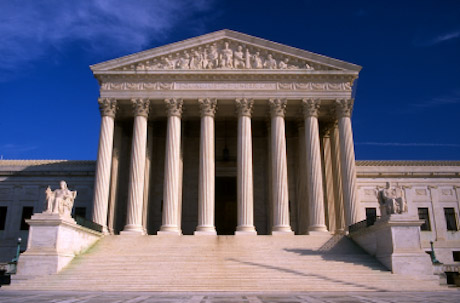January 18 2012, Brett Collson

The #StopSOPA protests were in full effect on Wednesday, but PokerNews is still here to bring you the day’s biggest headlines. In this edition of the Nightly Turbo, we bring you an Iowa Senator planning to draft an online poker bill, Phil Galfond’s suggestions to improve online poker, and more.
In Case You Missed It
Lee Nelson won the 2006 Aussie Millions Main Event, but he’s been MIA for much of the past six years. We caught up with Nelson to find out what he’s been up to for the latest edition of Where Are They Now.
This week, International Game Technology made a huge bet on the future of online gambling by purchasing Double Down Interactive for $500 million. Inside Gaming has the details on the acquisition of the social gaming giant.
Iowa Lawmaker Pushing for Online Poker Legalization
On Tuesday, Iowa Sen. Jeff Danielson said he intends to draft a bill soon to legalize online poker in the state. Iowa has been one of many states to show support for online poker since the Department of Justice changed its position on the Wire Act of 1961 last month. Iowa lawmakers also commissioned a study last year to determine the practicality and potential income Internet poker could generate for the state.
Danielson added that the DOJ’s decision could also allow states like Iowa to join jurisdictions that have already approved the activity. Nevada approved regulations for in intrastate online poker last month, and states like New Jersey and California are likely to follow.
“We believe that because of the Department of Justice ruling, we can now have a multi-state compact,” said Danielson.
Read more at the PokerNews.com.
Ch-ch-Changes
Phil Galfond’s departure from Blue Fire Poker last month has prompted the high-stakes legend to launch his own blog at philgalfond.com. Galfond has already been busy; along with a video outlining his plans for the new site, he posted a blog this week that has captured the attention of the poker community.
Titled Let’s Make Some Changes, Galfond makes several suggestions regarding the future of online poker. To improve the online games, Galfond says he believes the following goals need to be considered:
- Make playing poker an easy and fun experience for both pros and recreational players;
- Close loopholes that allow unethical players to gain an advantage over those who choose to be more honest; and
- Promote the play of more hands. Galfond then dove into each of the ideas with his own thoughts on how to improve the game.
The blog has been all over Twitter and even got a response from PokerStars:
You can find the blog in its entirety at philgalfond.com.
The Scoop on the TCOOP
In case it slipped your mind, we wanted to remind you that the inaugural Turbo Championship of Online Poker (TCOOP) will hit PokerStars on Thursday, Jan. 19. The series features 50 events, all in a fast-paced turbo structure, with $10 million in guarantees up for grabs.
Players can find buy-ins ranging from $5 all the way up to the $2,000 High Roller. The series begins Thursday at 1200 EST (1700 GMT) with a $22 Six Max NL Hold’em event, and culminates with a $700 Main Event on Sunday, Jan. 29. The flagship event features a $1.5 million guaranteed prize pool with more than $200,000 going to the winner.
The PokerStars Blog’s Brad Willis discussed the upcoming series with Team PokerStars Pros Jason Mercier, Bertrand “ElkY” Grospellier, David Williams, Ivan Demidov and Ana Marquez while at the PokerStars Caribbean Adventure this month. The story can be found at PokerStarsBlog.com.
For the full TCOOP schedule, visit PokerNews.com.
Is it Time, Zynga?
Since it first introduced an online poker platform in 2007, Zynga has maintained that it has no interest in going after a real-money space. Zynga Poker manager Lo Toney told PokerNews recently that the company has had its “head down focusing on our existing business model,” which is a free-to-play site catering to more than 30 million active users per month.
However, now that the Department of Justice has changed its stance regarding the Wire Act, we have to wonder whether Zynga will perform a flip-flop of its own. According to an article in Forbes, the online gambling market could be worth more than $40 billion by 2014, which could present a major opportunity for Zynga to generate billions of dollars in revenue from its casino games.
Zynga went public last month and has yet to see its stock price climb above its $10 initial public offering price. Could an interest in the real-money online poker market give the stock a significant boost?
Forbes has more.
On Your Bike, Shane Warne!
We’re well aware of Tony G’s obsession with bikes. So when cricket legend Shane Warne told Nicki Pickering about a run-in he had with a cyclist this week, Tony had an explanation.
Follow PokerNews on Twitter for up-to-the-minute news.
Follow Brett Collson on Twitter – @brettcollson
December 28 2011, Matthew Kredell

The Nevada Gaming Commission’s approval of online poker regulations Dec. 22 sets the stage for legal, licensed and regulated Internet poker to debut in the United States in the next year. However, the scope of the performance is still very much in question.
Whether the regulations are used under a national network, intrastate within only Nevada, or interstate between states under a Nevada umbrella will depend on the progress of a federal bill and state efforts in 2012.
Whatever is the future of online poker, Nevada wants to be at the center just as it is in the world of brick and mortar gambling. These regulations, which were asked for by legislation passed earlier this year in the state legislature, give Nevada a head start at establishing the framework for the regulation of online poker no matter what form it takes.
The Nevada Gaming Commission already has begun accepting applications for companies to operate Internet poker sites, including from Caesars Entertainment and Boyd Gaming. The companies that receive licenses will be free to begin offering play to people located within the borders of Nevada.
For companies that already own regular Nevada gaming licenses, the approval process is expected to be less than 90 days. It may take a little longer to form the internal controls necessary to implement the regulations. The first sites could begin serving people inside Nevada during the second half of 2012.
If a federal bill does pass, it is expected that states and Indian territories will be the regulators. That is the plan currently laid out in Rep. Joe Barton’s bill. Once a federal law is in place, Nevada will be ready to go and have companies pre-approved. Some states, like New Jersey and California, may want to handle their own regulation. Others may want to let Nevada oversee online poker in their state.
“Nevada is essentially moving ahead without a federal law,” said John Pappas, executive director of the Poker Players Alliance. “Should it become federal law, I think Nevada will be in the position to be one of the first states certified to issue licenses. I think a lot of states would rather not take the regulatory burden upon themselves and would say what’s good enough for Nevada is good enough for us.”
Liquidity is an issue with intrastate poker in Nevada, which has a population of about three million with additional people always in the state as tourists. However, with the popularity of live poker in places like Las Vegas, it might be the case that a higher percentage of people in Nevada are interested in playing poker than in other states.
If a federal law does not come along in the next couple of years, other states could end up officially legalizing online poker and joining Nevada to combine player pools across states. This option was made possible by the Justice Department’s recent announcement that the Wire Act, which prevents wagers across state lines, applies only to sports betting.
The approved regulations are important because many of them could end up being the rules used by the largest regulatory agency after federal legislation.
Some noteworthy aspects of the regulations:
- Player fund transfers are not allowed.
- Affiliates are allowed.
- Operators must ensure that players have only one account.
- Operators may pay a fixed sum to celebrity players for marketing purposes as long as the operator does not profit beyond the rake.
- Promotional credits or bonus credits offered by the operator are allowed.
- An operator must maintain a reserve of cash, cash equivalents, an irrevocable letter of credit, bond, or combination thereof, equal to the sum of all players’ funds.
- Any compensation received by an operator for conducting any game in which the operator is not party to a wager shall be no more than 10 percent of all funds wagered in each hand.
The regulations aren’t final. The Nevada Gaming Commission may decide to add or amend the rules at any time. Pappas said the PPA had not yet looked deeply enough into the regulations to determine if the organization had any concerns from a player standpoint.
Nevada having regulations in place to govern online poker could help with congressmen who remain on the fence regarding the issue.
“I think it shows Congress that the most prominent gaming state in the country is ready to regulate this activity and believes it can be regulated,” Pappas said. “I think that gives lawmakers some comfort that this can be appropriately regulated by an accredited regulating body.”
Follow PokerNews on Twitter for up-to-the-minute news.
December 22 2011, Chad Holloway

On Thursday, vegasinc.com reported that the Nevada Gaming Commission had approved regulations for intrastate online poker, becoming the first state in the United States to do so. The move sets the stage for the licensing of companies to offer online poker in Nevada, though play across state lines is prohibited.
The regulations passed by a unanimous vote and allow for companies currently licensed by the state to apply. Six companies have already filed applications: Cantor Gaming, Shuffle Master, International Game Technology, Bally’s Technology, South Point, and Caesars Entertainment.
As vegasinc.com reported: “The new regulations require applicants to prove their ability to maintain controls on player registration, prevent underage play and establish the location of players before being licensed. Regulations also address what information must be presented on their websites, record keeping, dispute resolution, fees and taxation and problem gambling notifications.”
Companies that are not currently licensed in the state of Nevada will be investigated per state regulations.
The regulations open the door for the state to officially accept applications, a move that was first announced more than a month ago.
“We’ve taken our brick-and-mortar operational standards to a new level,” Michael Lipparelli, chairman of the Gaming Control Board, said in November at the U.S. Online Gaming Law conference. “We’re going to continue to be flexible, but we think we’ve set the bar high for licensing and suitability.”
Stay up to date on all the latest news by following us on Twitter and liking us on Facebook.
Follow Chad Holloway on Twitter – @ChadAHolloway




